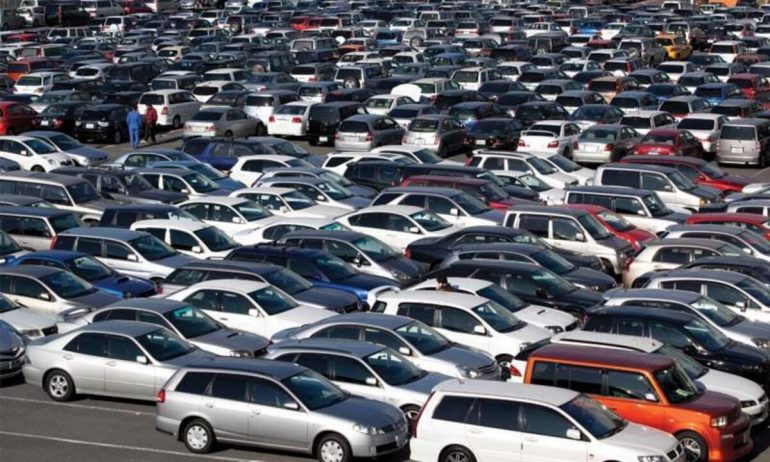In a recent development, the government has dropped its proposal to ban the import of CBU (complete built-up unit) vehicles in favor of imposing a regulatory duty of up to 50% on the imports of electric vehicles, hybrid vehicles, and regular gasoline vehicles for a limited time in order to contain and reduce the rising import bill.
A senior official at the Ministry of Industries and Production said, “Under the WTO regime, the country cannot ban imports. However, it can increase the tariffs on imports to reduce the import bill, so we have decided to increase the tariff on import of vehicles in the country.”
Furthermore, he said, “So much so, the increase in Federal Excise Duty (FED) up to 10 percent from the current 5 percent on vehicles being manufactured locally has also been proposed.”
According to the source, the ministries of industries and commerce will present suggestions to the Tariff Policy Board for approval, and once approved, they will be presented to the prime minister for final approval.
According to an official document, the relevant ministries have recommended imposing a 50 percent regulatory fee on the import of electric vehicles with battery packs larger than 50 KWH.
The Ministry of Industries and Production has justified the rise, claiming that the import of high-end EVs is increasing the current account deficit due to a reduction in customs duty (CD) on electric vehicles in CBU form from 25% to 10%.
The goal of the Electric Vehicle Policy is to support local manufacture, however, because of the lower customs tax, the import of high-end EVs has grown. According to the ministry, this action will deter the import of high-end EVs in CBU form.
The document also lays out a proposal to raise the regulatory tariff on Hybrid Vehicles (CBU) imports to 50% from the current 15% on 1501cc to 1800cc to help reduce the current account deficit.
According to the Ministry of Industries, this intervention will reduce the import of CBU automobiles. Similarly, a regulatory tariff rise of up to 50% has been suggested on the import of regular fuel automobiles in CBU form.
The industries and production ministry have also suggested a 10% rise in the Federal Excise Duty on domestically built automobiles and Support Utility Vehicles (SUVs) with engines of 1501cc and above, up from the current 5%.
The ministry claims in the paper that increasing the FED on CKD manufacture was proposed for a limited time due to the current financial crisis.
However, the proposed hike in FED to 10% will harm Pakistan’s vehicle sector’s growth, and it will be difficult to get the sector back on track, according to officials who played a key role in attracting foreign investment in the country’s automobile sector.
Furthermore, they stated that due to the Covid-19 outbreak, the number of cars produced in the country remained at 96,000 last year, but that output increased from between 250,000 and 275,000 this year. However, if tariffs are raised, the sector will suffer, making it difficult for the government to boost growth in the vehicle sector.



